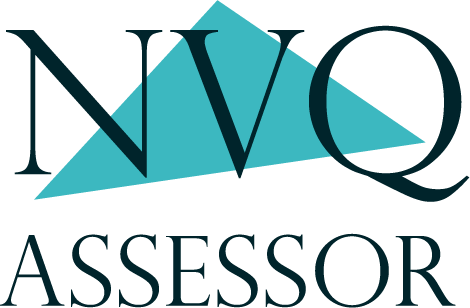 By Katherine Little
By Katherine Little
Published 9th Feb 2023 | Blog
Discover the Difference Between Internal and External Quality Assurance!
Quality Assurance is all about making sure that products and services are the best they can be, avoiding problems, and improving them continuously. But did you know that there are two different methods of Quality Assurance – Internal Quality Assurance (IQA) and External Quality Assurance (EQA)? Let’s dive in and find out what sets them apart!
Internal Quality Assurance
Let’s have a closer look at the IQA. The IQA is the process of monitoring the teaching, learning, and assessment activities of learners at a training provider. This is done by an internal member of staff known as the Internal Quality Assurer (or simply the Quality Manager).
In most cases, IQAs are supervisors or managers within training centres who are responsible for staff, systems, and procedures. Some may even perform both roles as an Assessor, but they can’t assess their own decisions to avoid conflicts of interest.
Want to become an Internal Quality Assurer? You’ll need two qualifications – the Assessor qualification and the IQA qualification.
External Quality Assurance
EQA is the process of ensuring that assessments and IQA activities are conducted in a consistent, safe, and fair manner. This is done by the Quality Assurer of the Awarding Body, who must be registered with the Training Provider.
EQA monitors the training centre’s processes and practices to ensure they meet the requirements and provides support and advice for areas of improvement. To become an External Quality Assurer, you’ll need the Assessor qualification and an EQA Qualification, which can only be obtained from the Awarding Body, such as Pearson Edexcel.
The IQA and EQA should have a good working relationship throughout the year to ensure the best possible outcome for learners.
If you’re interested in becoming an Internal Quality Assurer, then you will need to head on over to our friends at Brooks and Kirk to see if you’re eligible to complete the course!
If you have any questions about either course then please send us an email at hello@nvqassessor.org.uk and we will be happy to answer any and all questions.
NEWSLETTER
Fortnightly Assessor Jobs, Blog Posts and Exclusive Content straight to your inbox.
Welcome!
Discover the Difference Between Internal and External Quality Assurance!
Quality Assurance is all about making sure that products and services are the best they can be, avoiding problems, and improving them continuously. But did you know that there are two different methods of Quality Assurance – Internal Quality Assurance (IQA) and External Quality Assurance (EQA)? Let’s dive in and find out what sets them apart!
Internal Quality Assurance
Let’s have a closer look at the IQA. The IQA is the process of monitoring the teaching, learning, and assessment activities of learners at a training provider. This is done by an internal member of staff known as the Internal Quality Assurer (or simply the Quality Manager).
In most cases, IQAs are supervisors or managers within training centres who are responsible for staff, systems, and procedures. Some may even perform both roles as an Assessor, but they can’t assess their own decisions to avoid conflicts of interest.
Want to become an Internal Quality Assurer? You’ll need two qualifications – the Assessor qualification and the IQA qualification.
External Quality Assurance
EQA is the process of ensuring that assessments and IQA activities are conducted in a consistent, safe, and fair manner. This is done by the Quality Assurer of the Awarding Body, who must be registered with the Training Provider.
EQA monitors the training centre’s processes and practices to ensure they meet the requirements and provides support and advice for areas of improvement. To become an External Quality Assurer, you’ll need the Assessor qualification and an EQA Qualification, which can only be obtained from the Awarding Body, such as Pearson Edexcel.
The IQA and EQA should have a good working relationship throughout the year to ensure the best possible outcome for learners.
If you’re interested in becoming an Internal Quality Assurer, then you will need to head on over to our friends at Brooks and Kirk to see if you’re eligible to complete the course!
If you have any questions about either course then please send us an email at hello@nvqassessor.org.uk and we will be happy to answer any and all questions.
NEWSLETTER
Fortnightly Assessor Jobs, Blog Posts and Exclusive Content straight to your inbox.
Welcome!

Building Services End-Point Assessor
The employer is a Training Sector organisation in Leamington Spa who specialise in developing qualifications for the Construction and Civil Engineering sectors. They develop a range of industry qualifications including Apprenticeships, which are developed and assessed by sector specialists with real industry knowledge. They currently have a fantastic opportunity an experienced Building Services Engineer or […]

Childcare Assessor (Trainee or Qualified)
KM have an exciting opportunity for a Childcare Assessor to deliver full Apprenticeships in Childcare! This opportunity is open to both Trainee and Qualified candidates. Trainee applicants – this is a great opportunity for a Room Leader (or above) to transition to a new and rewarding career within the training industry! Qualified Assessors – applications […]

Skills Tutor
Educated Appointments are delighted to be supporting a fast-growing premier provider of accountancy training and apprenticeships. Due to increased demand for apprenticeship training programmes they are looking out for new Tutor to join our team. This role sits within the Impact Skills Team and ultimately reports to the Programme Delivery Director. This role includes travel […]

Business and Education End-Point Assessor
The role of an Apprenticeship End-Point Assessor is to provide independent, fair, reliable, and consistent assessment services to Training Qualifications UK customers working with Apprenticeship Standards. End-Point Assessors are required to use assessment experience with robust and relevant industry knowledge to form judgements and grading decisions upon the completion of a variety of assessment activities, […]


